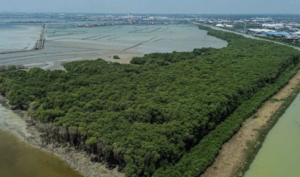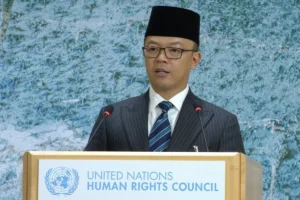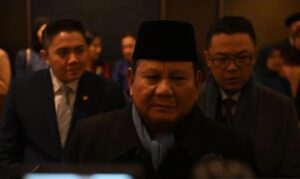Indonesia Accelerates Development of Semiconductor and AI Industries to Drive Economic Growth

Jakarta, The Gulf Observer: In a bold move to position Indonesia as a leader in the digital economy, the government is accelerating the development of the semiconductor and artificial intelligence (AI) industries, which are expected to be pivotal in the nation’s future economic transformation. This strategy is part of a broader effort to establish new drivers of economic growth in the digital age.
At a press conference on Wednesday, Coordinating Minister for Economic Affairs Airlangga Hartarto highlighted the critical role that semiconductors and AI will play in Indonesia’s economic future, stating that by 2045, GDP growth will rely heavily on these sectors. “Semiconductors and AI will be among the main engines of future growth,” Hartarto emphasized.
To realize this vision, Hartarto outlined several key strategies adopted by the government to accelerate the development of both industries. The first step involves the establishment of a task force for the development of semiconductor ecosystems and AI, coordinated by the Coordinating Ministry for Economic Affairs. This task force will focus on creating a comprehensive semiconductor ecosystem, including chip design, human resource training, and the construction of data centers across the country.
The second strategy centers on human resource development. The government plans to offer scholarships for students pursuing degrees in science, technology, engineering, and mathematics (STEM), from undergraduate to doctoral levels. Additionally, vocational training and research initiatives in technology will be supported. “Indonesia has collaborated with US universities, including Arizona State University and Purdue University. We will also encourage cooperation with universities in Singapore,” Hartarto noted.
The third initiative targets the development of assembly, testing, and packaging facilities, with projects already underway in Batam. This initiative aims to bolster Indonesia’s position in the global semiconductor supply chain.
Under the fourth strategy, the government is focused on increasing investment and trade in the semiconductor and AI sectors. “The government will ensure that the amount of investment in this sector will continue to increase along with the expansion of its industrial ecosystem,” Hartarto assured.
Regarding AI, Hartarto explained that artificial intelligence is not merely a tool for automation but a transformative technology that can enhance productivity across various sectors. He highlighted the establishment of an AI data center in the Nongsa Special Economic Zone (KEK), which will play a significant role in driving Indonesia’s AI industry.
Hartarto further mentioned that the government is in the process of developing a comprehensive roadmap for the national semiconductor and AI industry. The goal is for Indonesia to become ASEAN’s largest digital economy, with projections for the digital economy to reach US$150 billion by 2025 and US$600 billion by 2030.
Regionally, the ASEAN digital economy is expected to grow from US$1 trillion to US$2 trillion with the implementation of the Digital Economy Framework Agreement (DEFA), highlighting the importance of the sector for the region as a whole.
With these measures, Indonesia is taking significant steps towards realizing its ambition of becoming a key player in the global digital economy.


